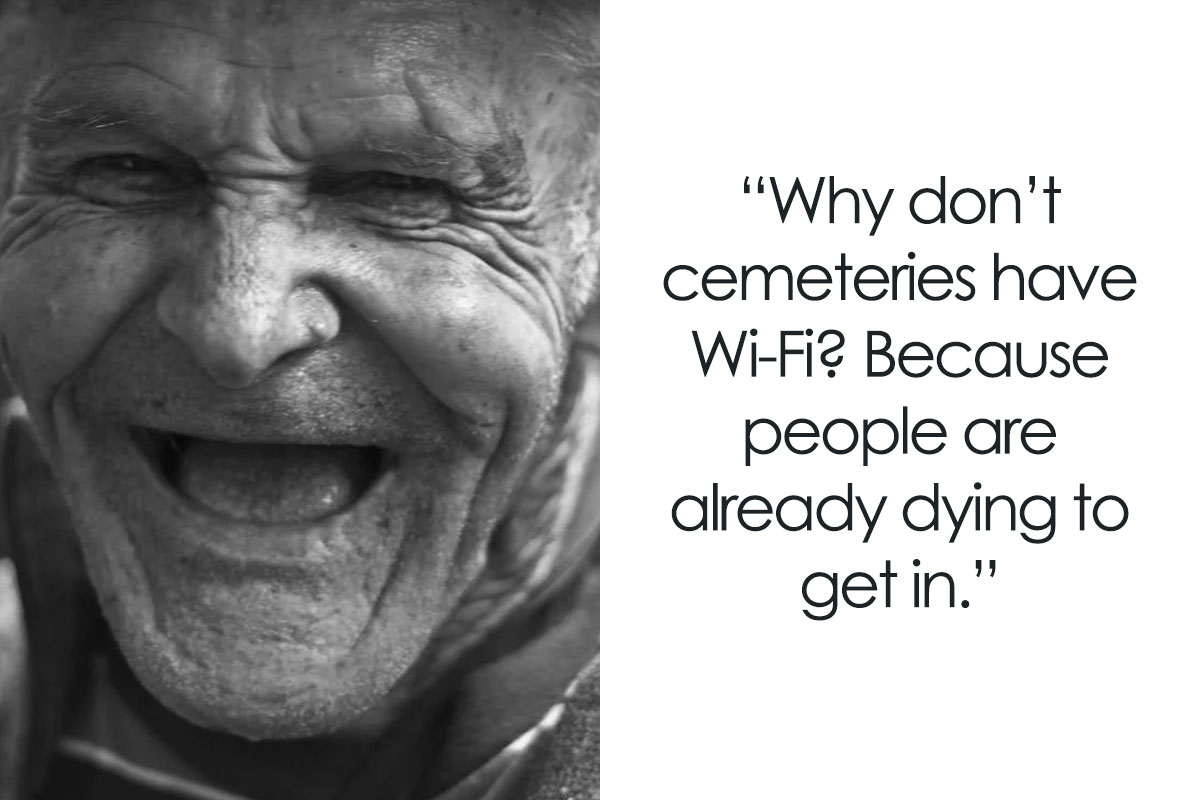Dark humor has become a popular form of entertainment for those who appreciate a twist of wit and sarcasm. Best dark jokes often tackle taboo subjects, making them both controversial and intriguing. Whether you're a fan of dark humor or just curious about its appeal, this article dives deep into the world of best dark jokes. From understanding their origins to exploring the psychological effects, we'll cover everything you need to know.
In recent years, dark humor has gained traction as people search for ways to confront uncomfortable topics through laughter. These jokes often challenge societal norms, pushing the boundaries of what is considered acceptable. By exploring the best dark jokes, we can gain insight into the complexities of human nature and how humor serves as a coping mechanism.
This article will guide you through the history, psychology, and cultural significance of dark humor. We'll also provide a curated selection of the best dark jokes, ensuring you're well-equipped to appreciate this unique form of comedy. So, let's dive in and explore why dark humor resonates with so many people today.
Read also:Izzy Fooks Michyna Rising Star In The Fashion Industry
Table of Contents
- What Are Dark Jokes?
- History of Dark Humor
- Psychology Behind Dark Humor
- Cultural Significance
- Best Dark Jokes Collection
- Long-Tail Keywords in Dark Humor
- Tips to Tell Dark Jokes
- Dark Humor in Media
- Dark Humor and Mental Health
- Conclusion
What Are Dark Jokes?
Dark jokes, also known as gallows humor or black comedy, are jokes that revolve around sensitive or taboo topics. These topics can include death, illness, tragedy, and other uncomfortable subjects. The essence of dark humor lies in its ability to find laughter in the darkest moments of life. While not everyone appreciates this form of humor, those who do often find it cathartic and thought-provoking.
Characteristics of Dark Jokes
Dark jokes typically have the following characteristics:
- They tackle serious or taboo subjects.
- They often use irony, sarcasm, or absurdity to deliver the punchline.
- They challenge societal norms and expectations.
History of Dark Humor
The concept of dark humor dates back centuries, with roots in ancient literature and theater. Shakespeare, for instance, often incorporated elements of dark humor in his plays, such as "Macbeth" and "King Lear." In more modern times, dark humor has been popularized by comedians, writers, and filmmakers who use it to comment on societal issues.
Evolution of Dark Humor
Over time, dark humor has evolved to reflect changing societal values and norms. What was once considered offensive may now be seen as a form of social commentary. This evolution highlights the adaptability of dark humor and its role in shaping cultural discourse.
Psychology Behind Dark Humor
Psychologists have long studied the effects of dark humor on the human psyche. Research suggests that those who appreciate dark humor tend to have higher levels of intelligence and emotional resilience. Additionally, dark humor can serve as a coping mechanism, allowing individuals to process difficult emotions through laughter.
Benefits of Dark Humor
- It can reduce stress and anxiety.
- It fosters a sense of connection with others who share similar perspectives.
- It encourages critical thinking and creativity.
Cultural Significance
Dark humor plays a significant role in various cultures around the world. In some societies, it is seen as a way to confront and overcome adversity. For example, during times of war or political unrest, dark humor has been used to maintain morale and provide a sense of normalcy. By examining the cultural significance of dark humor, we can better understand its impact on global communities.
Read also:Understanding Food Stamp Number A Comprehensive Guide To Snap Benefits
Dark Humor in Different Cultures
While the themes of dark humor may vary across cultures, its core purpose remains the same: to provide a outlet for difficult emotions. Whether through storytelling, comedy, or art, dark humor continues to be a universal language that transcends borders and backgrounds.
Best Dark Jokes Collection
Here is a curated selection of some of the best dark jokes to entertain and challenge your sense of humor:
Death and Tragedy
- Why don't graveyards ever get overcrowded? Because people are dying to get in.
- What do you call cheese that isn't yours? Nacho cheese.
Illness and Disability
- Why did the amputee go to the bar? To get a hand with his drink.
- What do you call fake spaghetti? An impasta.
Long-Tail Keywords in Dark Humor
Long-tail keywords related to dark humor include phrases like "best dark jokes for adults," "dark humor examples," and "funniest dark jokes." These keywords help users find specific types of dark humor that resonate with their interests. By incorporating these keywords naturally into content, creators can improve search engine optimization (SEO) and attract a wider audience.
Tips to Tell Dark Jokes
Telling dark jokes effectively requires a certain level of skill and sensitivity. Here are some tips to help you deliver dark humor with confidence:
- Know your audience and gauge their receptiveness to dark humor.
- Deliver the punchline with timing and confidence.
- Be prepared for mixed reactions and handle them gracefully.
Dark Humor in Media
Dark humor is frequently featured in movies, TV shows, and books. Popular examples include "Dr. Strangelove," "Catch-22," and "Monty Python's Flying Circus." These works use dark humor to critique societal norms and explore complex themes. By examining the portrayal of dark humor in media, we can gain insight into its role in shaping public discourse.
Impact of Dark Humor in Media
The impact of dark humor in media extends beyond entertainment. It challenges viewers to think critically about the world around them and encourages open dialogue about difficult topics. This makes dark humor an essential tool for fostering understanding and empathy.
Dark Humor and Mental Health
Research has shown that dark humor can have positive effects on mental health. It provides a way for individuals to process difficult emotions and connect with others who share similar experiences. However, it's important to recognize that dark humor may not be suitable for everyone, and sensitivity is key when sharing such jokes.
Using Dark Humor Responsibly
To use dark humor responsibly, consider the following:
- Be mindful of your audience's feelings and reactions.
- Avoid using dark humor to belittle or offend others.
- Use dark humor as a tool for connection, rather than division.
Conclusion
In conclusion, best dark jokes offer a unique form of entertainment that challenges societal norms and encourages critical thinking. By exploring the history, psychology, and cultural significance of dark humor, we can better understand its impact on individuals and communities. Whether you're a fan of dark humor or just curious about its appeal, this article has provided a comprehensive overview of the best dark jokes and their role in shaping modern comedy.
We invite you to share your thoughts and experiences with dark humor in the comments below. Additionally, feel free to explore other articles on our site for more insights into the world of comedy and beyond. Remember, laughter is the best medicine, even when it comes from the darkest places.
Data Source: Psychology Today, Scientific American



